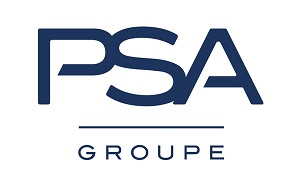PSA Peugeot Citroën plans a return to the US car market
PSA Peugeot Citroën plans to re-enter the US car market after an absence of more than two decades, as part of an ambitious global push to reduce its heavy reliance on European vehicle sales.

The French carmaker, whose turnround under chief executive Carlos Tavares has brought it back from the brink of collapse, on Tuesday unveiled a six-year strategy to boost sales abroad and exploit technological advances.
But PSA shares fell as much as 7 per cent, as the company said that over the next three years the closely watched operating margin at its automobile business would be below the level reported for last year.
Under the new strategy, PSA is targeting a 10 per cent increase in revenue by 2018 compared to 2015, and then a further 15 per cent rise in sales by 2021. This will be achieved partly by the company starting to manufacture cars in India and Southeast Asia.
The company’s internationalisation strategy also includes plans in the next 10 years for a return to the US, which Citroën quit in 1974 and Peugeot exited in 1991.
PSA will start with US ride-sharing services in partnership with Bolloré, the French conglomerate, but will eventually produce and sell vehicles in the world’s second-largest car market.
"We need to expand to protect the company from any one regional crisis,” Mr Tavares said in an interview with the Financial Times, referring to how PSA suffered amid the eurozone debt crisis. "The company almost paid with its life by having too much of a reliance on Europe.”
Two years ago Peugeot was forced into a €3bn state-backed bailout with the French government and Dongfeng, the Chinese carmaker, that saw each take a 14 per cent stake in the company.
Since then Mr Tavares has cut costs at PSA, reduced the number of models and increased prices.
Confirmation of his turnround came when the company in February reported a net profit of €1.2bn for 2015, compared to a loss of €555m for 2014.
The operating margin at the automobile business was 5 per cent last year, but PSA said on Tuesday that it would be 4 per cent on average between 2016 and 2018, rising to 6 per cent from 2019 to 2021.
The market was disappointed by the 4 per cent margin guidance for the next three years. Timothy Rea, an analyst at BNP Paribas, said peers were expecting a margin of "close to 6 to 7 per cent” over this period.
Still, the new strategy will see PSA continue to cut costs — with Mr Tavares saying that "the level of waste is still very high” at the company.
Another part of the strategy is a focus on technology, with PSA saying it will sell self-driving cars by the end of 2021 — a timeframe that brings it into line with several other carmakers.
The company will offer lane-tracking features for motorways that do not require driver control on its high-end models from 2018, said Mr Tavares, but he cautioned that the costs of the technology would prevent carmakers from rolling it out profitably in mass market vehicles.
The comments contradict the strategy announced this month by Nissan to release semi-autonomous features on the Qashqai, a family crossover, next year.
"I don’t understand how they are going to make them profitable,” said Mr Tavares, "because of the huge amount of technology you need to make these products drive safely”.
PSA will launch its first fully electric car in 2019. It has a goal of producing four electric models and seven new hybrid vehicles by 2021.
The company will also launch a €100m fund to invest in ride-sharing start-ups as it seeks to increase its exposure to a fast-growing market.
Demand for ride-sharing is a concern for carmakers as it could lead to falling sales and reduced vehicle ownership.
"We don’t know at which percentage this business will grow compared to the traditional carmaking business,” said Mr Tavares. "We need to be present in both sides on the equation.”
Mr Tavares said he continued to be open to partnerships with other carmakers, potentially similar in scale to the alliance between France’s Renault and Japan’s Nissan, although there were no active discussions. "It is not a must for us but any opportunity will be addressed,” he added.
Mr Tavares also said the recent furore in France over his pay package, which nearly doubled in 2015 to €5.2m, would not sour relationships with the trade unions at a time when he was attempting to negotiate a new labour contract. The last agreement contained a three-year pay freeze.
"My relationship with the union leaders is just excellent,” he added. He justified his pay by saying that "there is a market for CEOs, just as there is a market for soccer players and Formula One drivers”.
Source: ft.com
Latest News


